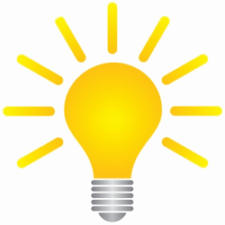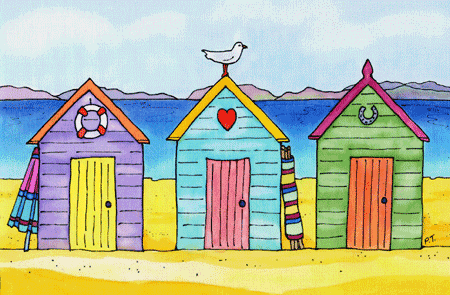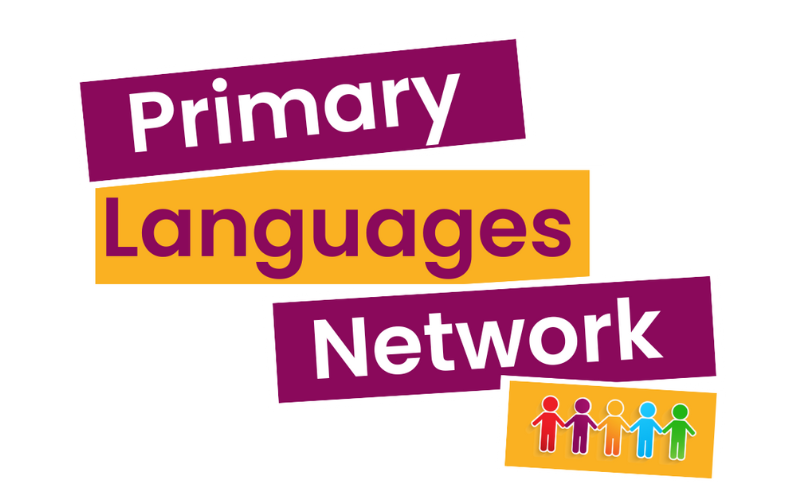Emerging , meeting exceeding....assessment......foundation subjects !
I spend a lot of time meeting with colleagues, discussing the implementation of primary languages in their individual schools.Recently I have spent some time beginning to help KS3 colleagues to understand what is happening in KS2 and to look at how we can create an effective learning continuum for the specific high school and link primary schools .
During the last two terms more and more frequently, I have had conversations with primary colleagues, who tell me that they are beginning to or are "assessing" or being required to assess primary language progress.
I welcome the fact that we need to demonstrate progress.
I recognise the challenges in doing this effectively and efficiently.
I identify that the assessment needs to demonstrate real progress in the language learners linguistic skills.
Why do I welcome "demonstrating progress"?
Well it means we have arrived!
It makes language learning real and a part of the whole primary curriculum and announces that we are part of the learning landscape!
It means that the "quantitative data" that we can pass up through the school will ultimately impact upon KS3 language learning.
It means that children will hopefully have a sense of "self efficacy" which means they are ready and confident to continue learning and can identify their own next steps.
Why do I recognise that there are challenges to overcome?
Well firstly it is a question of time - if you are only with a class for 30 minutes,then just how do you do this?
Even if you have more time,just how much more time do you have?
Secondly how do you create assessment as an integral part of the teaching and learning and adhere to the philosophy that all children can make progress and that language learning in primary should be a primary creative learning opportunity?
Thirdly do you assess all the children or a sample of children?
Fourthly just what should you assess, how and why? How do you then use this data to inform next steps or future remedial steps?
Fifthly what if you are a school that is just starting off and getting to grips with how to make languages an integral part of the timetable etc?
Why do I want to see a "demonstration of real progress in lingusitic skills"?
Well firstly I think we need to consider just what are we measuring.
Can we use his data to create the next learning steps for the children?
Can we use the data to inform us of our young learners strengths in language learning?
Can we use the data as a picture of progress and as information to help us create next term's/year's language learning across the year groups?
Can we as primary colleagues use this data to populate our dialogue with secondary colleagues and can we all find ways to use the data effectively, in a way that is fair to all children and promotes future progression and success?
Could data around linguistic skills help MFL departments inhigh schools to understand their new Y7 cohort better? I am thinking here particularly if the school at KS3 teaches a range of languages and the banding of children is not determined by which language they learn at primary?
I realise that I have raised alot of questions here and each of these questions demands reflection time on your part and in your individual setting or even better as a shared dialogue between settings and key stages!
As part of my work I am able to draw on the experiences of lots of other teachers in primary schools and some secondary schools who are grappling with these questions.
Here are my observations both current and from previous academic years,which may help you on your way to solving your own challenges.
The emerging picture
- The general consensus seems to be that the three descriptors in red at the top of the blog "emerging , meeting exceeding" are the preferred levelling descriptors.
- The schools are feeding the assessment data in to the specific assessment recording programme that is being used across school for all subjects.
- Schools are having to work out the best fit within this data collection and review system when primary languages are a subject that only need to be formally taught from Y3.
- Heads want quantitative data (in some instances already) .Therefore a base line is required so that a percentage outcome at the end of the year or during the year can be drawn.
- The baseline needs to be captured when the children start their formal language learning and the DFE POS requires this to start term one Year 3.Quite a few of the schools I work with teach from YR but in my opinjon we need to see the formal procress and trackong of progress starting from Autumn Y3.The baseline is then a snap shot of the skills the children have already, but based on the content,context and activities of September language learning.
- Schools that I work with are looking at the skills of learning a language (transferable linguistic skills as we are preparing each young language learner for languages we do not yet know he/she may need to learn in his/her own lifetime)
- Currently there are lots of schools ,where pupils in UKS2 are at the same level as pupils in LKS2 and also in some schools LKS2 children may have learned more language than children in UKS2.
- Amongst the schools I work with there are schools that hjave yet to address assessment as they are setting off or still finding their way in language teaching and learning.what is apparent though is that pri ary colleagues bring an understanding of data analysis to the table.Once they begin to collect data they are able to use this effectively and are not afraid to adapt and adjsut assessment processes to find the best way forward.
- Currently secondary schools I am working with ,ant a picture of a primary Year 6 class as a whole and they are not setting classes using this data or using this data to monitor inidividual pupils progress. This could and should change as the implementation of Year 3 to Year 9 language learning progresses.they recognise this and are working through ways to adjust their Y7 teaching and learning as the data changes and progresses between Y6 and Y7 over the next couple of year.
- Some schools are trialling APP models and some schools are monitoring every pupil.
- What is apparent is less is more and where cplleagues have created huge lists of assesmengt focae the picture is confused.
- Schools who are tracking four skills (L,S,R,W) and have now begun to consider progress in basic grammar(nouns,adjectives and verbs) have a clear,simple and informative picture of progress.

A possible way forward!
- Look at the DFE POS learning objectives- these are skill descriptors just like we had in the KS2 Framework but concertina style! (The DFE POS runs across KS2 and KS3 and therefore should lead us along a learning continuum from Year 3 to Year 9)
- Think of the four main language skill areas.(Listening Speaking Reading and Writing).
- Identify the four main skill strands - listening ,speaking ,reading and writing.
- Populate these four main areas with the learning objectives from the DFE POS
- Expand these skill descriptors (you may need to look at the KS2 framework objectives to do this) and therefore explore the stages of learning required to become competent in each skill at the level described in the DFE POS learning objective.For example what stages can a child develop thorugh to becpme a competent language pupil in Y3,4,5 or 6 in listening and responding ?
- Look at the CEFR descriptors A1 and A2 for listening,spoken interaction ands spoken production reading and writing.Chart level A1 and possibly A2 against the skills and the DFE POS learning objectives.
- The Assessment in MFL guidance from the ESAG suggest that these documents in the last four bullet points are key pathways to explore.
- Focus on generating one descriptor of expected progress per stage of "meeting the expected competency" per skill (can do .....).Give children somewhere to go to - that si allow for progress beyond the skill descriptor that you decide upon for that stage of learner.
- In mixed age classes especially you will need to offer more than one stage of skill competency.
- Keep assessment tasks simple and integral to the lesson and primary appropriate - simon says , bingo . APP recordings for speaking, performances, creatve writing activities , reading sorting/seeking activities.
- Make evidence collection integral to the lesson and for speaking use recordings and post it records
- Build in opportunities for children to share their growing knowledge of grammar and how to use bilingual dictionaries - don't force the activity , see where the activity lends itself to such an assessment opportunity.
- Depending on the school requirements -plan to track all or a sample of the class- record using simple tick charts with evidence kept and activities highlighted and dated in planning etc.
- Baseline assess your sample group or class at the start of the first year of formal language learning- start next year with Year 3! Allow the children time to settle and to practise language first - so we are looking at end of September.
- Keep the assessement "skill" not "content" driven
- Track progress in these skills across the year
- Plan to assess atleast three times in the year and want to see the use of each skill a certain number of times across the year by the specifc child or children in the sample group.
- Remember we want childrren to succeed.Learning a language is a life skill so in my opinion at the early primary stages of language learning we want children to develop self efficacy and to do this they need to feel confident and that they are developing communication skills.
In real practice!
Remember some schools are just starting off!
Schools are looking at the DFE POS and the learning objectives and tracing these objectives back to the 4 core skills and grammar
Some schools are tracking two skills often listening and speaking to see how it works in practise.
Schools are keeping activities very manageable ( a table game/ a quiz/a Quiz quiz Swap observed activity)
Where schools work with our asscoiate teachers the class teacher is asked to support with the tracking and assessment and in some cases work alongside the language teacher. It is my opinion important that the teachers in school can see porgress and align this with the whole development of the young primary learner.
Schools are keen to report progress to parents and find the "can do " skill statements easy to use for this purpose.Reporting of content and transactional language progress is also shared.
Keep it simple - if you have to explain progress to SLT baed on what you have assessed then it needs to be easy to follow and evidence kept needs to clearly demonstrate progress.
Where effective tracking and recording is taking place,it is empowering and it allows the coordinator to show the value of language learning across the curriculum to other members of staff and SLT/ governors.
Where dialogues are beginning to develop between primary and secondary schools based on skill progress then a bigger picture is created of the young developing language learners.
With some colleague we have discussed hiw assessment in languages and then drilling down to see where gaps are ,could help teachers to support children with commnication challenges or see strengths that they didn't obviously notice in other areas of the curriculum. This I feel is a really interesting area to investigate.
KS3 colleagues are becoming more interested in the stage of competency in linguistic skills with their next year Y7 cohort.This does raise challenges but being persistent and looking for solutions is key!
There is mileage in the use of the CEFR alongside the DFE POS learning objectives as both a diagnostic and summative tracking and assessment tool from Y3 to Y7 and beyond.
KS3 colleagues can use anecdotal and informal evidence of content and languages covered to inform how they approach similar topics and content.











